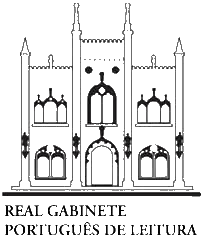'Esse cabelo em Luanda, Lisboa, Paraíso': Djaimilia Pereira de Almeida e a experiência do desenraizamento na tentativa de integração
DOI:
https://doi.org/10.37508/rcl.2020.n43a375Keywords:
self-fiction, fiction, contemporary literature, Djaimilia Pereira de AlmeidaAbstract
The article aims to compare how the novels Esse cabelo: a tragicomédia de um cabelo crespo que cruza fronteiras (This hair: the tragicomedy of curly hair that crosses borders) and Luanda, Lisboa, Paraíso (Luanda, Lisbon, Paradise), by Djaimilia Pereira de Almeida, discuss the experience of racial prejudice in Portugal in the 1980s, after the independence of Angola and the end of the Salazar dictatorship. Through the autofictional writing, her debut book, and the fictional one of her second publication, it will be observed how the intertextuality performed by the author, between her two books and with other works, took place in the theme of the losses of utopias, which will culminate in the review of political speeches that have been processed in Portugal and Africa.
Downloads
References
AGUALUSA, José Eduardo. De princesa a bruxa, O Globo, Rio de Janeiro, p. 6, 25 jan. 2020. Segundo Caderno.
ALMEIDA, Djaimilia Pereira. Esse cabelo: a tragicomédia de um cabelo crespo que cruza fronteiras. Rio de Janeiro: Leya, 2017.
ALMEIDA, Djaimilia Pereira Luanda, Lisboa, Paraíso. São Paulo: Companhia das Letras, 2019.
CHAVES, Rita. A formação do romance angolano: entre intenções e gestos. São Paulo: Via Atlântica, 1999.
FERREIRA, Eduardo de Sousa. O fim de uma era: o colonialismo português em África. Lisboa: Sá da Costa, 1974.
GABRIEL, Ruan de Sousa. Romance “envolvente” dá a Djaimilia o Oceanos 2019, O Globo, Rio de Janeiro, p. 4, 6 dez. 2019a. Segundo Caderno.
GABRIEL, Ruan de Sousa. Finalista do Oceanos, escritora portuguesa se inspira em Cartola, O Globo, Rio de Janeiro, p. 6, 5 dez. 2019b. Segundo Caderno.
GRIMAL, Pierre. Dicionário da mitologia grega e romana. Tradução Victor Jabouille. 4. ed. Rio de Janeiro: Bertrand Brasil, 2000.
HUTCHEON, Linda. Poética do pós-modernismo: história, teoria, ficção. Tradução Ricardo Cruz. Rio de Janeiro: Imago, 1991.
LUGARINHO, Mário César. Paradigmas confrontados: algumas masculinidades nas literaturas africanas de língua portuguesa, Metamorfoses, Rio de Janeiro, v. 14, n. 1, p. 141-151, 2017. DOI: https://doi.org/10.35520/metamorfoses.2017.v14n1a10553
PAULO, Heloísa. Aqui também é Portugal: a colónia portuguesa do Brasil e o salazarismo. Coimbra: Quarteto, 2000.
PEPETELA. O tímido e as mulheres. São Paulo: Leya, 2014.
PERRONE-MOISÉS, Leyla. Mutações da literatura no século XXI. São Paulo: Companhia das Letras, 2016.
SARAIVA, José Hermano. História concisa de Portugal. 20 ed. Sintra: Europa-América, 1999.
SCHOLLHAMMER, Karl Erik. Ficção brasileira contemporânea. Rio de Janeiro: Civilização Brasileira, 2011.
Downloads
Published
How to Cite
Issue
Section
License
Authors who publish in Convergência Lusíada agree with the following terms:
- Authors retain copyright and grant the journal right of first publication with the work simultaneously licensed under a Creative Commons Attribution-NonCommercial 4.0 International License (CC-BY-NC 4.0) that allows others to share the work with an acknowledgment of the work's authorship and initial publication in this journal.
- Authors may enter into separate, additional contractual arrangements for the non-exclusive distribution of the journal’s published version of the work (e.g., post it to an institutional repository or publish it in a book), with an acknowledgment of its initial publication in this journal.
- Authors are permitted and encouraged to post their work online (e.g., in institutional repositories or on their website) prior to and during the submission process, as it can lead to productive exchanges, as well as earlier and greater citation of published work.

Revista Convergência Lusíada is licensed under a Creative Commons - Atribuição-NãoComercial 4.0 Internacional.









